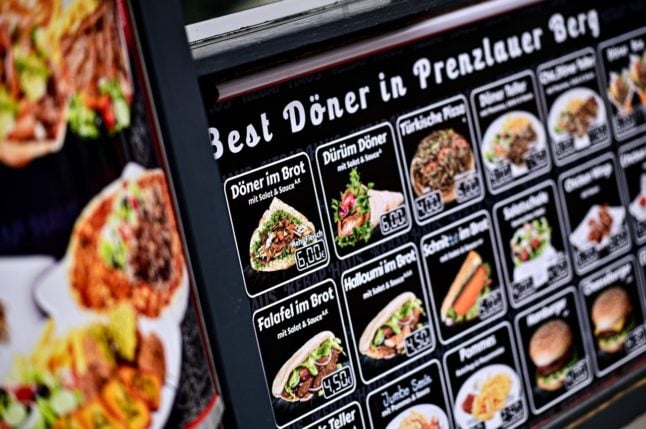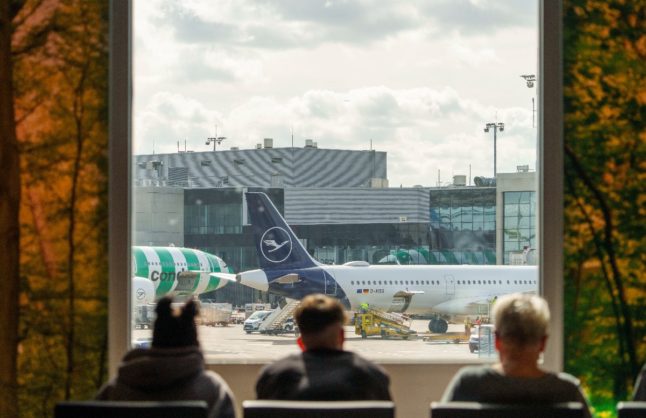In modern day Berlin, where tech start-ups and luxury flats are a dime-a-dozen, there’s always a fair bit of nostalgia for the halcyon days of yore. For some, this dates back to the mystical time you could apparently nab yourself a three-bed Altbau apartment in Prenzlauer Berg for €200 warm, for others it’s the era of 24-hour Eckkneipen with €2 beer on tap, and for many, it’s that long-lost time where you could reliably find a Döner for €3 or less.
What separates out these nostalgic fantasies is the fact that, unlike the mythical Prenzlauer Berg flat, the legend of the €3 Döner kebab is actually in most Berliners’ living memory. It’s shorthand for a simpler time before gentrification had fully run its course, when it didn’t matter if the flat you moved into didn’t have a kitchen because eating out was almost as cheap as cooking at home. And not too long ago, it was a reality.
While the price of kebabs in the ‘Döner capital’ have been climbing steadily for years, in the past year or so, the price hikes have been dramatic. Nowadays it’s not rare to shell out at least €6 or €7 for your kebab – even at the neighbourhood joints that were known for being cheap.
But the problem isn’t just confined to Berlin. As a recent survey by delivery company Lieferando has shown, Germany’s most popular fast food option is soaring in price across the country.
READ ALSO: How the humble Döner kebab evolved into Berlin’s go-to fast food snack
Why are Döners so expensive these days?
Döner shop owners are facing a perfect storm right now, with much higher wage, energy, and food costs.
Speaking to Tagesschau, Ömer Gülec – who runs a kebab shop in Frankfurt am Main – said it was increasingly difficult to cover his costs by selling kebabs.
“If we wanted to sell the kebab to cover costs, we would have to raise the prices to at least nine euros,” he said. But that’s near impossible to do without alienating customers.
“For some customers, the döner kebab is a basic food that should not cost more than six euros,” explained Gülec.
That’s largely because food has become eye-wateringly expensive to buy, with data from the Federal Office of Statistics showing a 24.3 percent uptick in the price of cereal and bread products compared to last February. Meanwhile, vegetables cost around 20 percent more, and beef and veal have increased in price by around 18 percent.
Another key factor was last September’s jump in the minimum wage, which is now set at €12 an hour, and the huge rise in energy costs. In every kebab shop around the country, the meat spit turns all day long, leaving owners with sky-high bills.
Combine all three and it makes it near impossible to charge anything less than €6 – let alone €3.
Which cities are the cheapest – and which are the priciest?
Lieferando’s ‘Döner-Vergleich’ (Döner comparison) found pretty significant regional differences in how much people are charged for their kebab – but the study also shows that a Döner under €6 has become something of a rarity anywhere.
Dresden and Bremen kept their earlier titles as the more affordable places in the country to enjoy a kebab, with customers in Saxony’s capital paying an average of €6.40 and those in the northern city-state paying €6.17. But a glance at a previous Lieferando survey shows just how much prices have gone up in the past year. Back in 2022, the average price of a Döner in Bremen was just €4.67 and in Dresden it was €4.96.

On the other end of the spectrum, residents of Frankfurt am Main buy their kebabs from an average price of €7.80, and in pricey Munich, €7.98 is the new norm. That compares to a much more modest €5.47 in Frankfurt and €5.67 in Munich at the time of the last survey.
And what about Berlin, the city that has arguably the strongest love affair with the kebab? Well, customers here also have to dig pretty deep in their pockets: they’re paying an average of €7.08 for a Döner, compared to around €5.40 last year.
READ ALSO: As supplier costs rise, are cheap kebabs a thing of the past in Germany?
Could €10 kebabs become the norm?
When it comes to subjects that are likely to rile up the German population, few have quite the force that Döner prices do.
Back in October, a video of Chancellor Olaf Scholz (SPD) being confronted by a furious Döner customer went viral online.
Olaf Scholz is confronted by a voter angry about Döner prices
“€8 döner, I won’t pay that for a döner, speak with Putin I want to pay €4” pic.twitter.com/8NMSqMBVSH
— James Jackson (@derJamesJackson) October 27, 2022
The plight of the Döner has become such an emotive issue that there have been calls on social media platforms recently for a ‘Dönerpreisbremse’ – or Döner price cap – to follow on from the government’s energy price cap.
The pleas gained such momentum that they even elicited an official response from the government.
“With the energy price brakes, the federal government is also helping small entrepreneurs like the kebab trader,” they said. “Will it make kebabs cheaper? That can’t be said for sure yet.”
But according to Ömer Gülec in Frankfurt, the halcyon days of €3 kebabs are probably behind us for good.
“If the prices continue to rise so strongly for at least another six months, then the kebab prices will scratch the €10 mark everywhere,” he told Tagesschau.
Soon, a Döner for less than five euros could even be hard – if not impossible – to find.



 Please whitelist us to continue reading.
Please whitelist us to continue reading.
Member comments